Abstract
The effects of high hydrostatic pressures on protein synthesis by whole cells and cell free preparations of Escherichia coli, Pseudomonas fluorescens, and Pseudomonas bathycetes were determined. Actively growing cells of P. bathycetes and P. fluorescens were less sensitive than were E. coli cells. Protein synthesis by cell free preparations of E. coli and P. fluorescens showed the same extent of inhibition as their respective whole cell preparations, whereas cell free preparations of P. bathycetes showed a marked increase in pressure sensitivity over whole cells. Protein synthesis by hybrid protein synthesizing cell free preparations (the ribosomes from one organism and the S-100 supernatant fraction from another) demonstrated that response to high pressure is dependent on the source of the ribosome employed. A hybrid system containing E. coli ribosomes and P. fluorescens S-100 shows the same sensitivity to pressure as a homologous E. coli system, whereas a hybrid containing P. fluorescens ribosomes and E. coli S-100 shows the greater pressure tolerance characteristic of the P. fluorescens homologous system.
Full text
PDF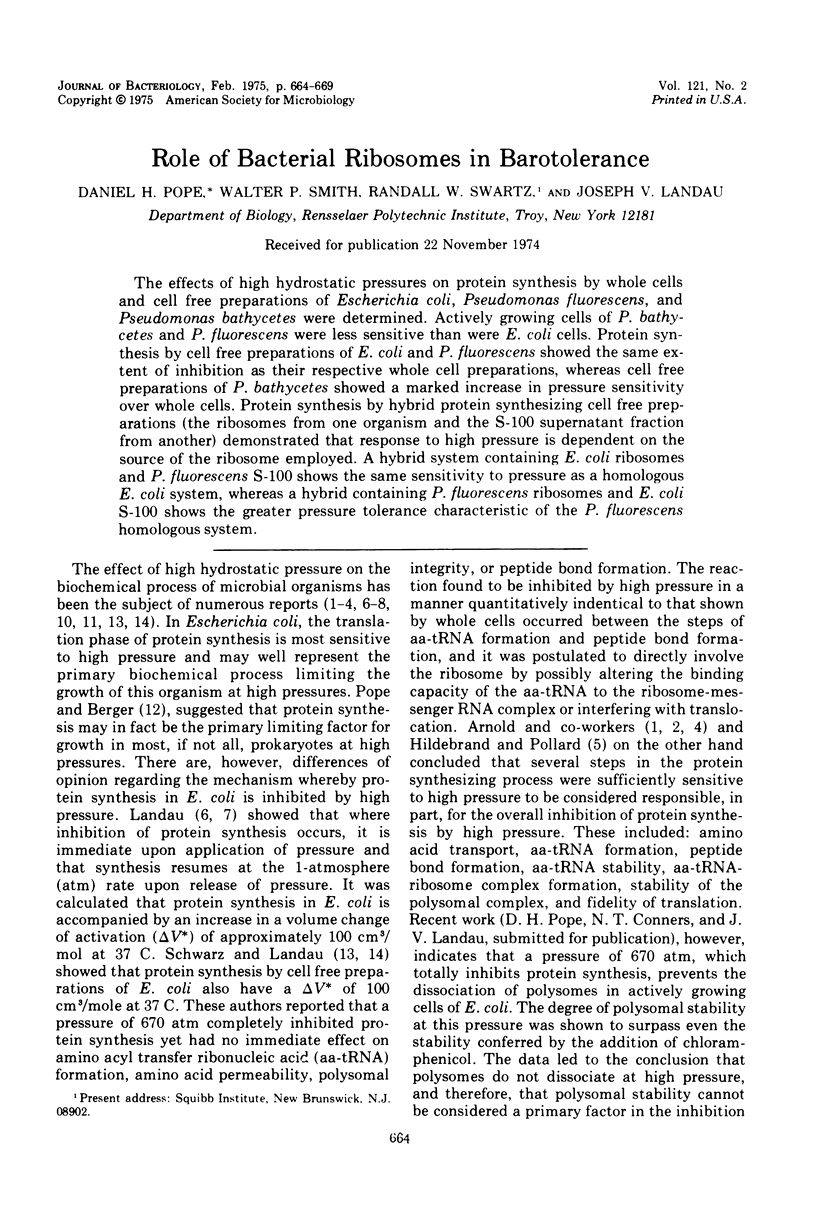
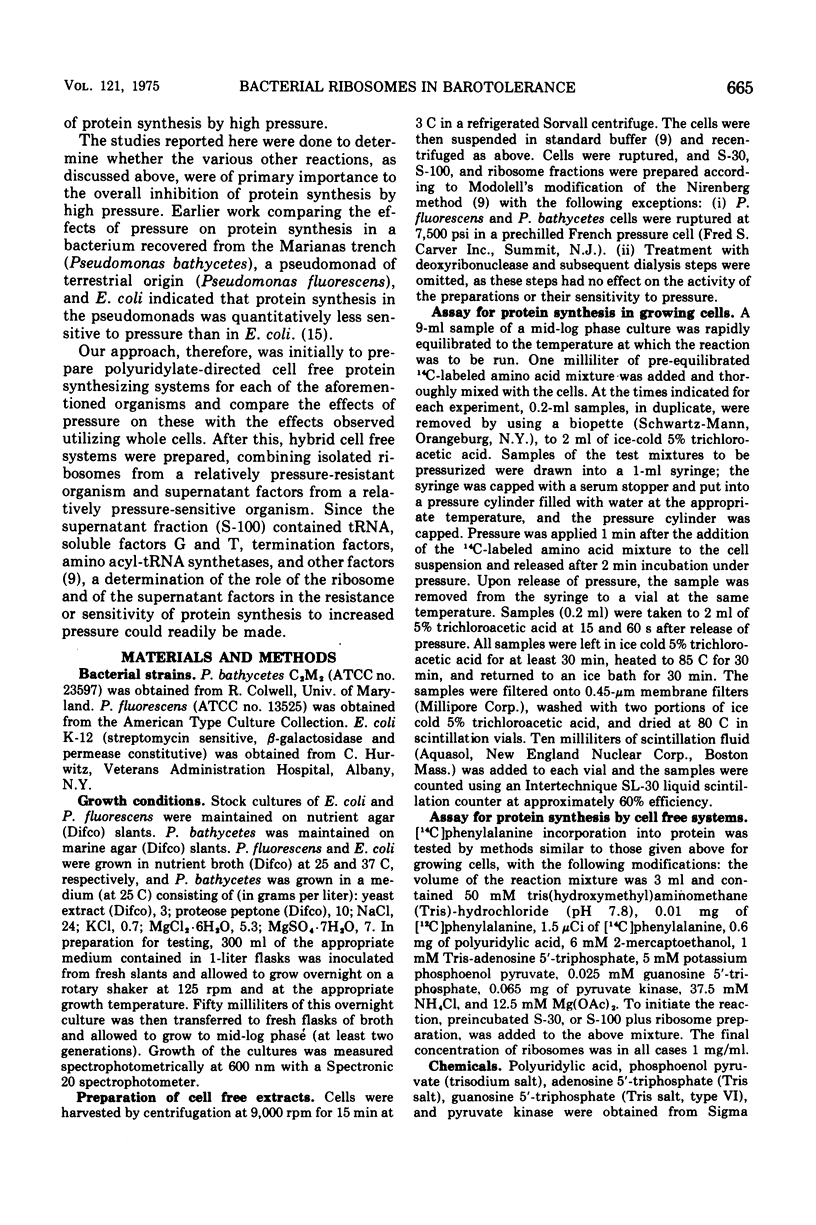
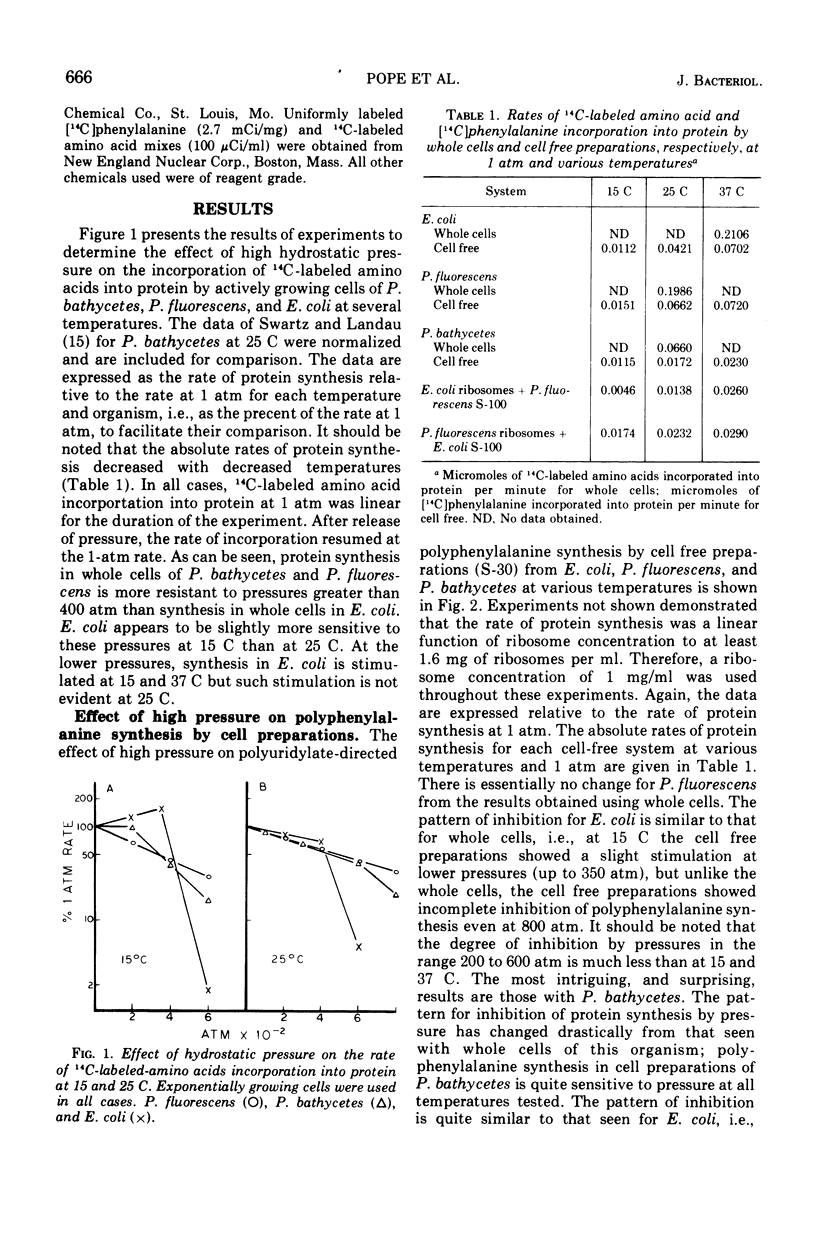
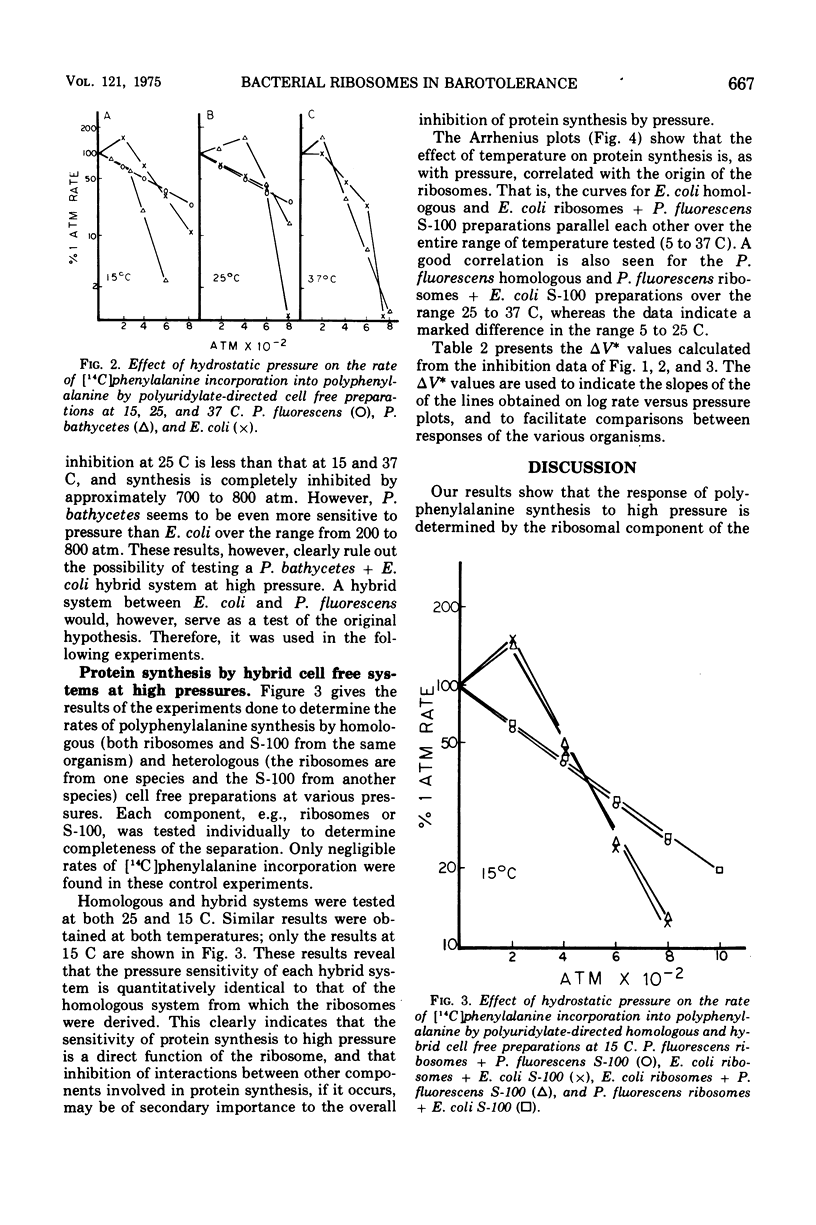
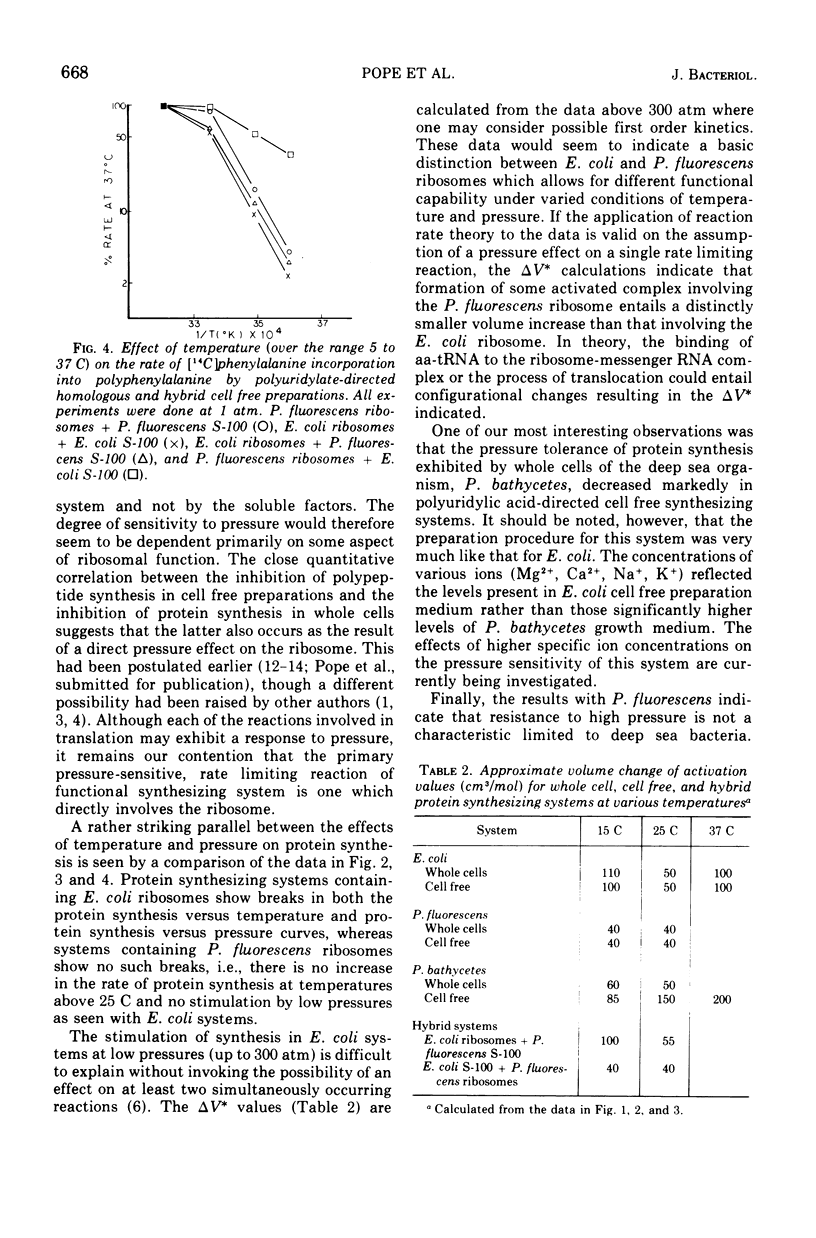
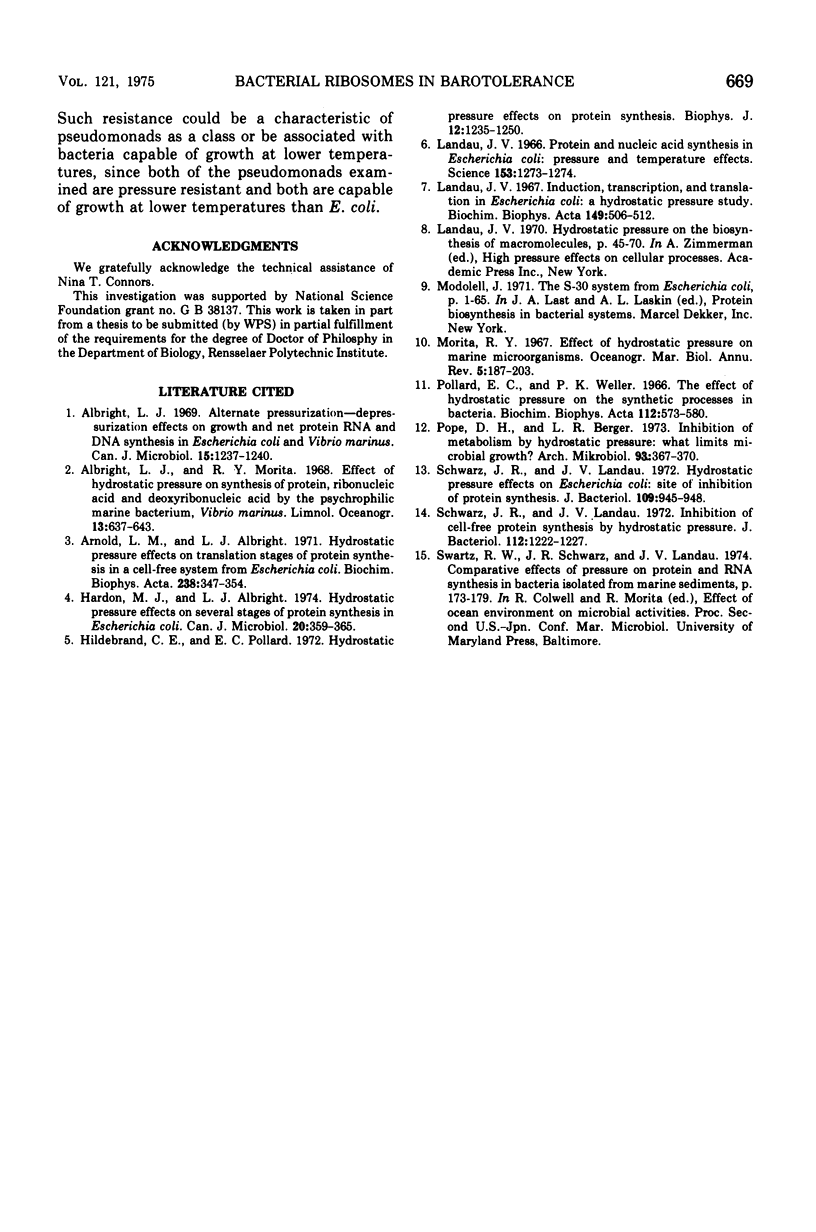
Selected References
These references are in PubMed. This may not be the complete list of references from this article.
- Albright L. J. Alternate pressurization-depressurization effects on growth and net protein, RNA and DNA synthesis by Escherichia coli and Vibrio marinus. Can J Microbiol. 1969 Oct;15(10):1237–1240. doi: 10.1139/m69-223. [DOI] [PubMed] [Google Scholar]
- Arnold R. M., Albright L. J. Hydrostatic pressure effects on the translation stages of protein synthesis in a cell-free system from Escherichia coli. Biochim Biophys Acta. 1971 May 13;238(2):347–354. doi: 10.1016/0005-2787(71)90103-1. [DOI] [PubMed] [Google Scholar]
- Hardon M. J., Albright L. J. Hydrostatic pressure effects on several stages of protein synthesis in Escherichia coli. Can J Microbiol. 1974 Mar;20(3):359–365. doi: 10.1139/m74-055. [DOI] [PubMed] [Google Scholar]
- Hildebrand C. E., Pollard E. C. Hydrostatic pressure effects on protein synthesis. Biophys J. 1972 Oct;12(10):1235–1250. doi: 10.1016/S0006-3495(72)86159-9. [DOI] [PMC free article] [PubMed] [Google Scholar]
- Landau J. V. Induction, transcription and translation in Escherichia coli: a hydrostatic pressure study. Biochim Biophys Acta. 1967 Dec 19;149(2):506–512. doi: 10.1016/0005-2787(67)90178-5. [DOI] [PubMed] [Google Scholar]
- Landau J. V. Protein and nucleic acid synthesis in Escherichia coli: pressure and temperature effects. Science. 1966 Sep 9;153(3741):1273–1274. doi: 10.1126/science.153.3741.1273. [DOI] [PubMed] [Google Scholar]
- Pollard E. C., Weller P. K. The effect of hydrostatic pressure on the synthetic processes in bacteria. Bibl Laeger. 1966 Mar 14;112(3):573–580. doi: 10.1016/0926-6585(66)90261-5. [DOI] [PubMed] [Google Scholar]
- Pope D. H., Berger L. R. Inhibition of metabolism by hydrostatic pressure: what limits microbial growth? Arch Mikrobiol. 1973 Nov 19;93(4):367–370. doi: 10.1007/BF00427933. [DOI] [PubMed] [Google Scholar]
- Schwarz J. R., Landau J. V. Hydrostatic pressure effects on Escherichia coli: site of inhibition of protein synthesis. J Bacteriol. 1972 Feb;109(2):945–948. doi: 10.1128/jb.109.2.945-948.1972. [DOI] [PMC free article] [PubMed] [Google Scholar]
- Schwarz J. R., Landau J. V. Inhibition of cell-free protein synthesis by hydrostatic pressure. J Bacteriol. 1972 Dec;112(3):1222–1227. doi: 10.1128/jb.112.3.1222-1227.1972. [DOI] [PMC free article] [PubMed] [Google Scholar]


